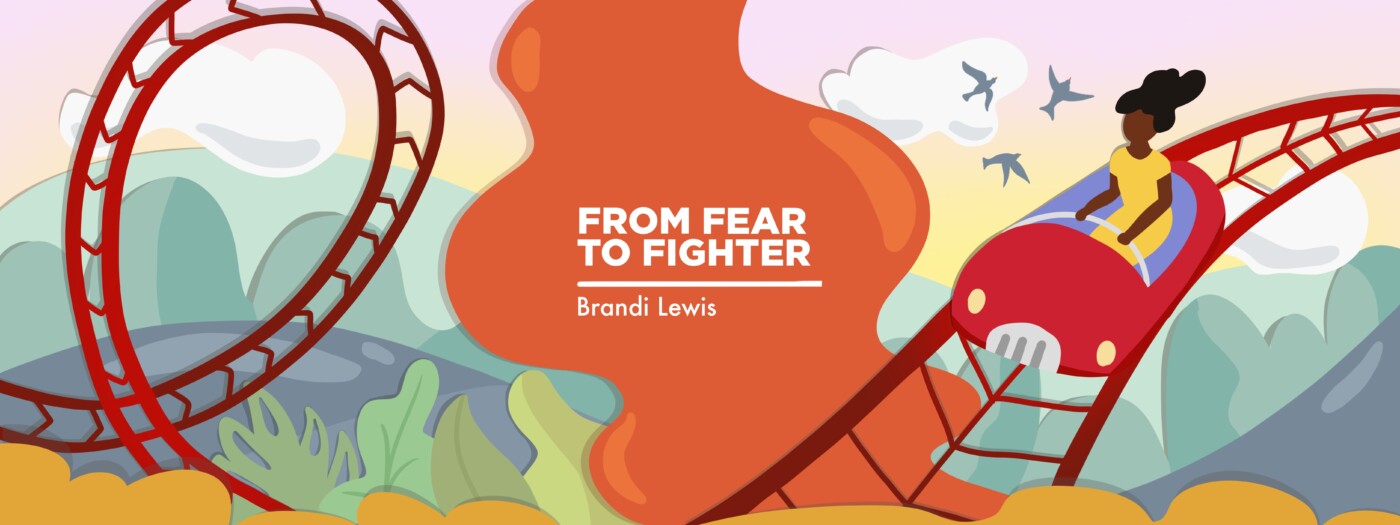Answering that first question after a PNH diagnosis: ‘Now what?’
Learning you have the disease can be frightening, but making a game plan helps
Written by |

I answered the doctor’s call with, “Hello, this is Brandi.” On the other end, my doctor paused and then delivered the news: “Your results came back, and they are positive for paroxysmal nocturnal hemoglobinuria” (PNH).
I didn’t know what to think. Just that week, I’d been diagnosed with aplastic anemia. Receiving a PNH diagnosis shortly afterward was both confusing and frustrating. How did I get here? I wondered.
So many questions were racing through my head. I’d never heard of PNH. I didn’t know what to do. I didn’t understand how I would beat this illness.
I sat in my room and cried. I walked around like a zombie with my head low, shoulders hunched, and feet dragging.
After giving myself time to feel all of the emotions, I decided to do some research. I was cautious, though, because I didn’t want to read about worst-case scenarios. I simply wanted educational information.
Some of the questions I had: What is PNH? What does it stand for? How many people in the world are diagnosed with it each year? Are there support groups? How can I find a PNH specialist?
My Google search history was filled with PNH questions. I wanted to conquer my fear, and to do so, I had to know the facts. Much of my fear was due to the unknown. I was facing not one, but two rare blood disorders, and I was terrified that treatment options wouldn’t be available.
Much to my surprise, I found some reliable information on the internet. With my parents by my side, we made a game plan to overcome this health challenge. Hint: Game plans aren’t only for the sports world! Picture drawing a horizontal line of black paint below your eyes as you get ready to go to battle. That’s how serious I was about going to war with my illnesses, and I was convinced the outcome would be in my favor.
My game plan was as follows:
1. Find my tribe
I wanted to find a group of patients who were on similar journeys as me. I also wanted to meet people who were further along in their journey and could offer me advice or answer my questions. I joined Facebook groups, reached out to blood disorder organizations, and attended rare disease conferences.
I spoke with other people who’d been diagnosed with aplastic anemia and PNH. I asked them about their journeys, their treatment plans, and how they tackled everyday living with these blood disorders. This step was one of the most productive I took. Online research can be good, but there’s nothing like speaking to someone who understands you.
2. Find a PNH specialist
By finding my tribe, I was also able to locate a PNH specialist more quickly than I’d imagined. At a rare disease conference, I met an older woman who’d been diagnosed with PNH a decade earlier. It felt like I’d hit the jackpot. It was a great benefit to me to see someone thriving while living with PNH.
I asked her how she’d found her PNH specialist. Her eyes lit up, showing how excited she was to give me the information. She wrote down five PNH specialists whom she either had heard great things about or had met herself.
My parents and I took the list and did some research about where they were located, the hospitals where they practiced, and their specialties. We narrowed down the list and had an initial call with some of the doctors. We asked how they would go about treating my illnesses.
Meeting the woman who gave me this list was pure gold! The information changed the game for me.
3. Find treatment options
I now had a great doctor in my corner. We began gathering information for him. When we spoke with him, I soaked it up like a sponge. With my eyes wide open and my body leaning forward, I took in every word he said. We took extensive notes, asked many questions, and left each appointment feeling a little better.
Because I was fighting two blood disorders, my treatment options were different from those of a person with just PNH. My doctor reassured me that treatment plans were available for me, which was a big relief.
Initially, I did’t know how I’d survive PNH. I had only negative thoughts after my diagnosis. I was frustrated and feared the worst. But after making a game plan and meeting others who were on a similar journey, my thoughts about fighting the disease changed for the better.
I’m thankful I had the courage to keep fighting for my life. It’s always worth the fight.
Note: PNH News is strictly a news and information website about the disease. It does not provide medical advice, diagnosis, or treatment. This content is not intended to be a substitute for professional medical advice, diagnosis, or treatment. Always seek the advice of your physician or other qualified health provider with any questions you may have regarding a medical condition. Never disregard professional medical advice or delay in seeking it because of something you have read on this website. The opinions expressed in this column are not those of PNH News or its parent company, Bionews, and are intended to spark discussion about issues pertaining to paroxysmal nocturnal hemoglobinuria.





